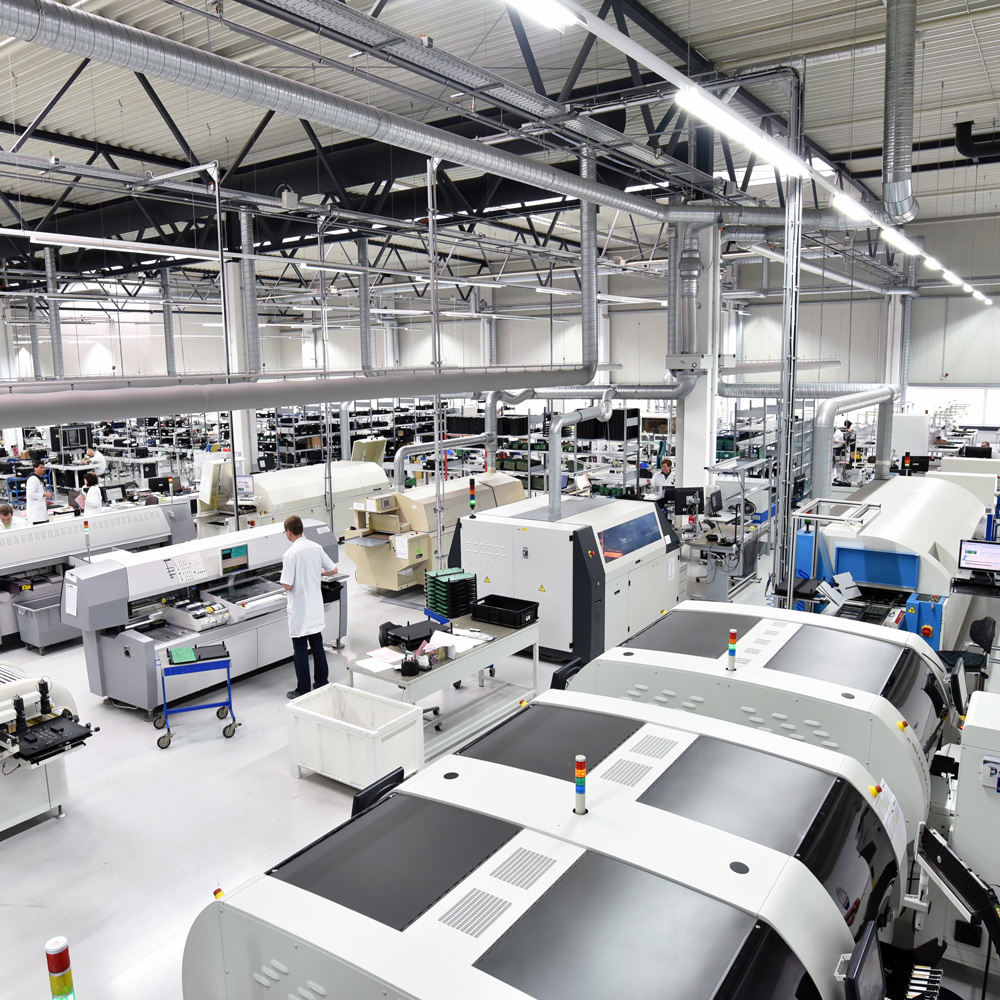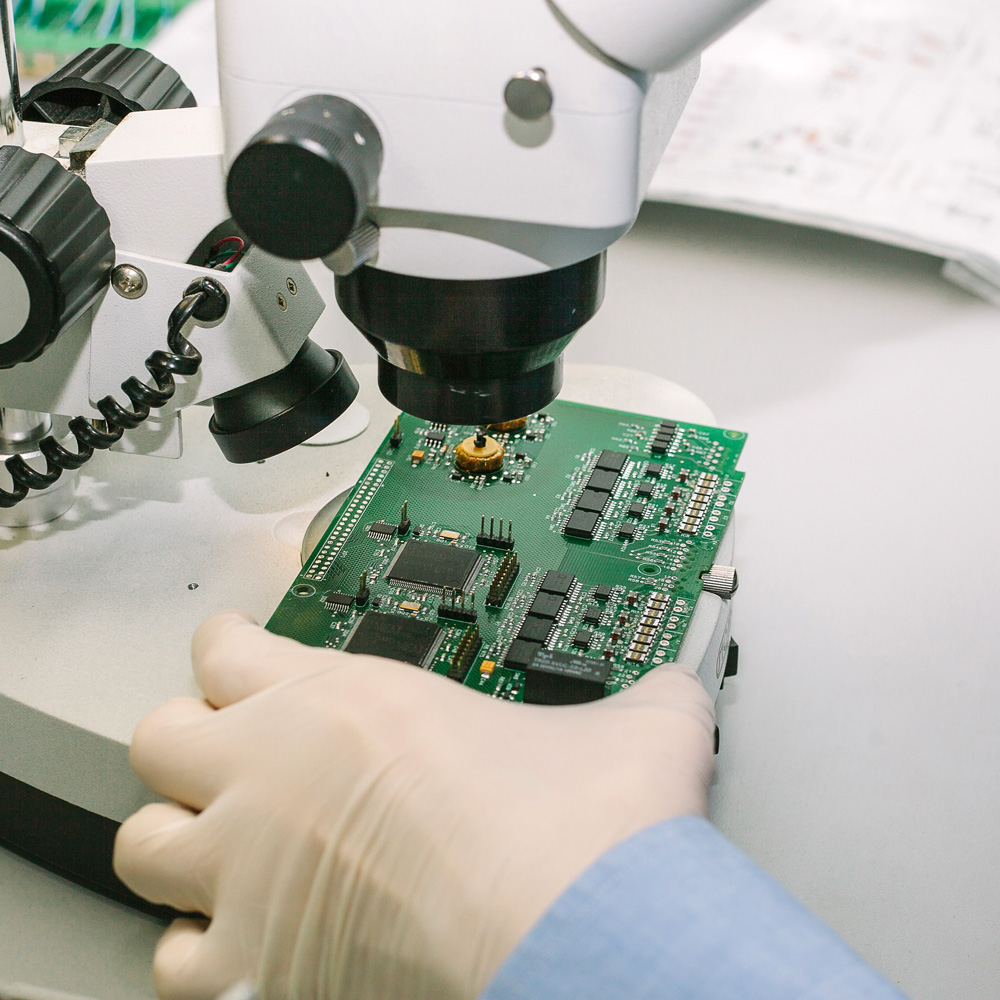ACTIA, a major EMS partner for IoT & energy stakeholders

ACTIA’s expertise in EMS for IoT and energy sectors
As an EMS provider, ACTIA has developed specialized expertise in the field of connected devices and home automation. This is built on solid technological foundations and supported by a highly flexible and interoperable industrial platform. From functional prototyping to large-scale production and supply chain management, ACTIA supports its customers throughout every stage of their IoT project. Thanks to the agility of its mid-sized business structure, ACTIA adapts seamlessly to all types of clients from startups to major industrial groups.
ACTIA’s expertise in telematics and RF communication allows it to address the full range of connectivity, cybersecurity, and functional safety requirements specific to IoT systems. All of this is managed within a certified ISO 27001 environment.
In parallel, ACTIA also brings strong technological capabilities in the field of smart energy networks and energy efficiency. Whether it’s home automation, energy management and storage, or smart metering, ACTIA works alongside key players in these sectors to deliver high-value electronic systems.
Upstream, ACTIA’s engineering teams are involved from the design and development phase, integrating electronic, mechanical, and software design for optimized product architecture.
During industrialization, ACTIA leverages its robust DFX (Design for eXcellence) methodologies and processes to ensure production reliability, with the best possible outcomes in terms of quality, cost, and lead times.
The industrialization and production phases are structured around three key strengths:
- A versatile industrial tool suitable for all production volumes
- Industrial excellence driven by the Group’s “Factory of the Future by ACTIA” program
- A global manufacturing service offer: Original Design Manufacturing (ODM), Assembly, Integration, Testing & Debugging, Supply Chain & Logistics, and Sourcing
To further support project success, ACTIA also provides a full suite of value-added services designed to secure, optimize, and control industrial costs over time. These include regulatory compliance and certification, component management, obsolescence and shortage mitigation, prototyping, small-scale production, upgrading, repairs, and reverse logistics.
Additionally, ACTIA can offer early-stage carbon footprint assessments of PCB designs. This service helps reduce environmental impact throughout the product lifecycle and supports customers in developing more sustainable electronics.

Scalable EMS solutions for diverse IoT and energy demands
ACTIA provides the IoT and energy sectors with scalable EMS solutions, tailored to their specific production needs for both emerging and mature applications. Its factories accommodate small-batch prototyping, medium-volume production and high-volume series manufacturing without compromising on quality, traceability or lead time.
In the IoT sector, product designs often evolve rapidly to meet new connectivity, integration or cybersecurity requirements. In the energy sector, scalability is essential to support smart grid deployments, distributed energy systems or smart metering programs. ACTIA’s industrial flexibility enables stakeholders to quickly transition from proof of concept to mass production while maintaining strict adherence to quality standards and regulatory frameworks.
ACTIA’s global network supports this capacity to scale production dynamically, ensuring resilience and supply chain continuity. ACTIA delivers the manufacturing agility required to address the operational realities of the IoT and energy sectors, from startups in connected home solutions to established utilities rolling out grid infrastructure.


Electronic manufacturing services driving energy efficiency and smart grid innovation
ACTIA supports the development and industrialization of advanced electronic systems for energy management, storage and smart metering, through the development of tailored electronic systems. They allow the creation of intelligent solutions for energy efficiency, grid stability and resource optimization. These applications include demand response systems, decentralized energy generation and real-time energy monitoring solutions. These systems rely on high-performance PCBA (Printed Circuit Board Assembly), rigorous testing protocols and continuous traceability, standards embedded across all of ACTIA’s production sites.
Furthermore, ACTIA’s ability to manage component lifecycle supports the long-term viability of electronic systems deployed in smart energy infrastructure. By providing reliable and adaptable EMS for the energy sector, ACTIA contributes to the transition toward more efficient and sustainable energy networks.

Addressing obsolescence and supply chain resilience in IoT and energy EMS
ACTIA addresses these challenges with integrated lifecycle and obsolescence management. Its dedicated laboratory monitors End of Life (EOL) risks and provides technical solutions to secure long-term project viability. Its processes allow for early identification of obsolescence, alternative sourcing recommendations and support for requalification and redesign when needed.
Supply chain resilience is also critical in a market characterized by component shortages, fluctuating lead times and increased geopolitical risks. ACTIA’s EMS solutions include robust sourcing strategies, secure storage conditions and comprehensive traceability to mitigate disruption. Its ability to manage Bill of Materials (BOM) complexity across various production volumes ensures stable procurement for both prototypes and large-scale deployments.


Value-added EMS services for sustainable IoT and energy solutions
Sustainability is a strategic priority for IoT and energy stakeholders, requiring functional innovation, responsible product development and lifecycle management. Electronic manufacturing services play a pivotal role in achieving these objectives by offering value-added services that extend beyond traditional production.
ACTIA’s EMS solutions improve the environmental and operational sustainability of electronic systems. Early in the development cycle, ACTIA provides carbon footprint assessments of Printed Circuit Board (PCB) designs, enabling customers to reduce environmental impact during the design process. This approach supports more sustainable decision-making in component selection and system architecture.
In addition, ACTIA’s EMS includes repair, upgrading and reverse logistics, all of which contribute to product longevity and resource efficiency. These services are essential for applications such as energy monitoring, smart grid infrastructure and home automation, where minimizing waste and maximizing lifecycle value is critical.
By integrating regulatory compliance, obsolescence management and long-term support into its EMS offer, ACTIA helps its customers achieve their sustainability goals with no compromise on technical performance or reliability.

